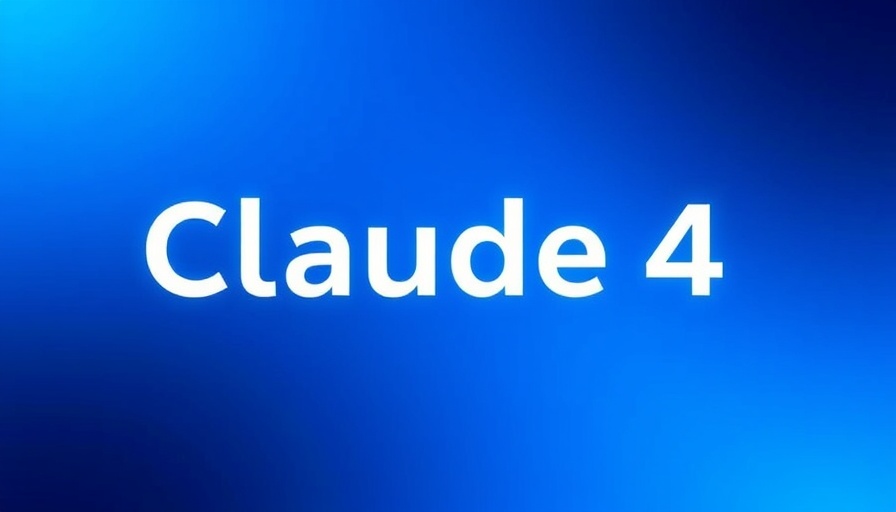
Tracking the Evolution of Claude AI: What Makes Claude 4 Stand Out?
The advent of Claude 4.0 marks a significant milestone in the iterative evolution of AI language models, a journey that has captured both excitement and scrutiny within the tech community. Released roughly one year after Claude 3.0, the Claude series, developed by Anthropic, showcases notable advancements, especially in capabilities connected to coding—a primary focus of this latest iteration.
In 'Claude 4: Everything you need to know', the discussion highlights crucial updates on the new iteration's features, prompting further analysis of its market implications and future trends.
Why the Shift in Focus Towards Coding Solutions?
Amidst the backdrop of various AI advancements from competitors, Claude 4's stark emphasis on coding raises pertinent questions about the market's trajectory. Experts highlight that coding has become the 'killer use case' for AI models, blending structured input and verifiable outputs seamlessly. As coding becomes the predominant use of large language models, Claude's prowess here could define its market position.
Anticipating the Future: Will We See Claude 5 Soon?
The discussions around Claude 4 have inevitably led to speculation about Claude 5. Predictions from industry experts suggest that the next iteration could arrive merely months after this release, emphasizing the market's expectation for continual innovation. However, this expectation also illuminates an underlying concern regarding the pace of AI development—the rise in consumer demands could outstrip the sustainable growth of responsible and ethical AI.
Understanding Anthropic’s Dual Focus: Safety and Performance
While coding remains at the forefront, Anthropic's commitment to safety and alignment protocols continues to inform its roadmap. The introduction of methods, such as constitutional classifiers, seeks to enhance AI's decision-making capabilities while mitigating biases, contributing to a more responsible AI landscape. This approach acknowledges the growing public sensitivity surrounding AI's implications for society, particularly in software development, where ethical use is paramount.
The Dynamics of Innovation: Competition and Collaboration
The landscape surrounding AI models is evolving. With notable players like OpenAI aggressively innovating, the sector appears ripe for competitive dynamics reminiscent of 'Mac versus PC' scenarios. This hints at a future where boundaries may blur between models, influencing both functionality and access among products, potentially leading to a fracturing of user experiences. It's imperative for stakeholders to remain cognizant of these trends as they reshape how consumers interact with AI technologies.
 Add Row
Add Row  Add
Add 




Write A Comment